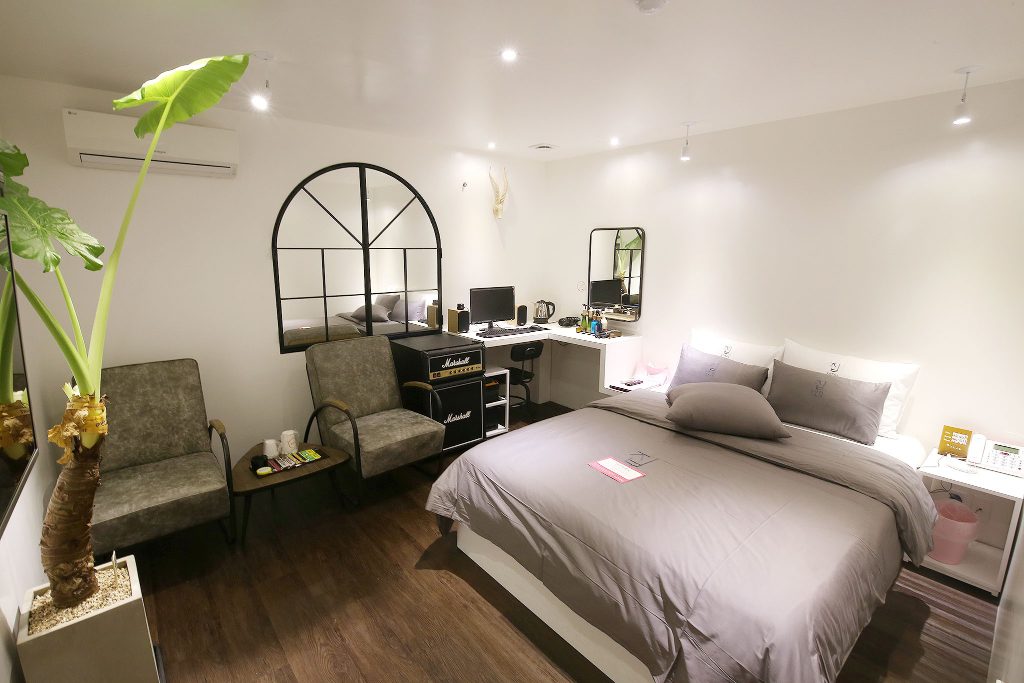Skift Take
Yanolja got its start as a chain of so-called love motels. But it has since become a reputable online travel agency in Korea and a provider of a widely used property management system. No wonder Booking Holdings has made a strategic investment in the company.

Travel Startup Funding This Week
Each week we round up travel startups that have recently received or announced funding. Please email Travel Tech Reporter Justin Dawes at [email protected] if you have funding news.
This week travel startups announced more than $206 million in funding.
>>Yanolja, which calls itself the largest online travel platform in South Korea, has raised $180 million in Series D funding.
GIC, Singapore’s sovereign wealth fund, and Booking Holdings led the round. The funding placed a valuation on the startup of more than $1 billion.
The companies said that Booking Holdings’ brand Agoda would start to offer its customers Yanolja’s South Korean hotel listings, and Yanolja customers will offer its users listings from Agoda and other Booking Holdings’ brands.
Yanolja, which means “Hey, let’s play” in Hangul, got its start by offering so-called love hotels, or places for people to meet for romance. So the company is also the owner of more than 200 hotels under its brand name and more than 1,000 properties under the ZenRooms brand. Since 2015 it has focused on offering more respectable and traditional lodging under brand names like Kotel, which do not offer adult entertainment on the TV or have decor like neon lights.
Founded in 2005, the Seoul-based company also offers a property management system for hoteliers and managers of other types of properties.
CEO Kim Jong-yoon said Yanolja’s revenue nearly doubled to $200 million last year, from a year earlier, but the company is not profitable. This year the company is hiring more than 400 employees, including 200 research and development personnel, up from the 800 it had in January.
Yanolja is building a so-called smart hotel in Jeju Island, Korea, that uses artificial intelligence and the internet of things to help guests with automation. Korea Telecom is assisting on the pilot project.
Getaway, a hospitality company that “provides mindful escapes to tiny cabins in nature within two hours of major cities,” has closed a $22.5 million Series B financing round.
Starwood Capital Group led the round.
“Starwood Capital’s passion and capability for innovation within the hospitality space marries perfectly with Getaway’s mission to provide wellness and mindfulness-oriented travel experiences,” said Barry Sternlicht, Starwood Capital Group’s Chairman and CEO, in a statement.
Getaway raised a $15M Series A round in early 2017.
>>Stride, a marketplace for all experiential, multi-day and multi-destination trips planned by experts, has raised $2.5 million in seed funding from JetBlue Technology Ventures and NFX.
Past investors have included Plug and Play Technology Ventures and TDG Ventures as well as angels like the co-founder of JetBlue Airways John Owen, the co-founder of Hipmunk Adam Goldstein, and the co-founder of TripIt Scott Hintz. The startup has raised a total of $3.1 million in funding.
The San Francisco startup recently launched TripFinder, which it claims is the first online matchmaking experience for multi-day tours, where consumers answer a quiz about their travel preferences to receive a few recommendations culled from an inventory of more than 30,000 itineraries from about 1,200 tour providers worldwide.
TripFinder said it drove more than $330 million in gross referral revenue in 2018.
>>Welcome, a mobile app for spontaneous travel, has received $1.2 million in seed funding.
3 Rodeo led the round.
The mobile app provides itineraries for consumers at more than 200 destinations that travelers can customize by swiping the icons on their screens.
If a user chooses to linger longer at a destination or if the weather changes, the app will adjust the rest of the itinerary. Travelers can give the app some guidance on their budget, mood, and tastes.
Skift Cheat Sheet:
We define a startup as a company formed to test and build a repeatable and scalable business model. Few companies meet that definition. The rare ones that do often attract venture capital. Their funding rounds come in waves.
Seed capital is money used to start a business, often led by angel investors and friends or family.
Series A financing is typically drawn from venture capitalists. The round aims to help a startup’s founders make sure that their product is something that customers truly want to buy.
Series B financing is mainly about venture capitalist firms helping a company grow faster, or scale up. These fundraising rounds can assist with recruiting skilled workers and developing cost-effective marketing.
Series C financing is ordinarily about helping a company expand, such as through acquisitions. In addition to VCs, hedge funds, investment banks, and private equity firms often participate.
Series D, E and beyond These mainly mature businesses and the funding round may help a company prepare to go public or be acquired. A variety of types of private investors might participate.
Check out our previous startup funding roundups, here.
The Daily Newsletter
Our daily coverage of the global travel industry. Written by editors and analysts from across Skift’s brands.
Have a confidential tip for Skift? Get in touch
Tags: funding, startups, vcroundup
Photo credit: Yanolja, which calls itself the largest online travel platform in South Korea, has raised $180 million in Series D funding. Originally a love hotel company, it now offers Kotels, one of which is shown here, which are respectable properties without adult entertainment on the TV or neon lights. Yanolja
